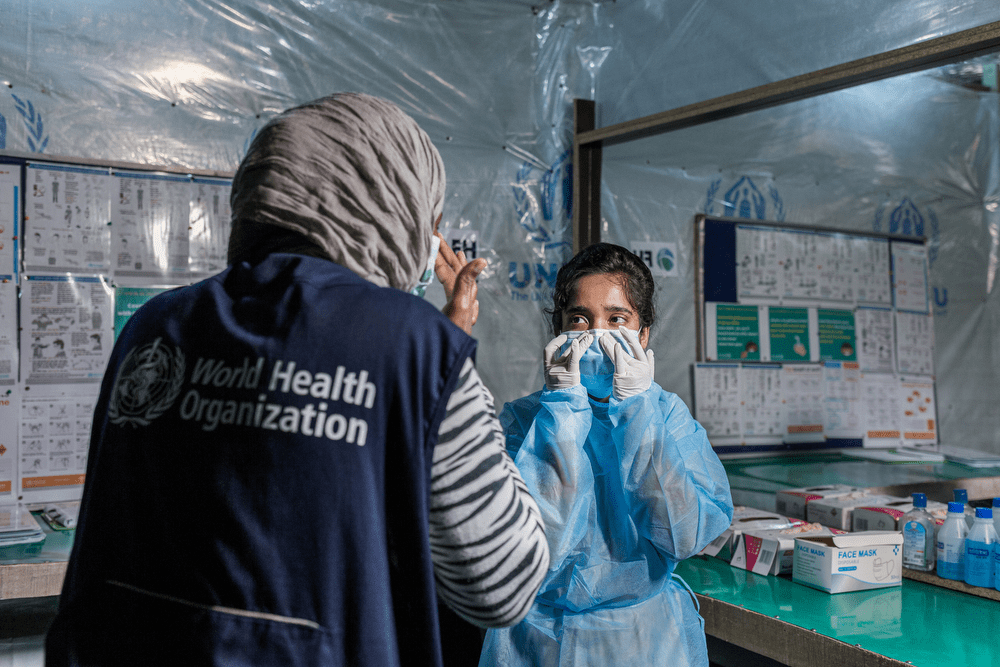Significant numbers of children remain malnourished. 149.2 million children under five years old are stunted, 45.4 million children are wasted and 38.9 million are overweight. Meanwhile, 2.2 billion adults – over 40% of all men and women – are overweight or obese and no country is on track to halt the rise of obesity
The State of Global Nutrition New Report released Tuesday morning has called for step up in action as poor diets and malnutrition drive increasing levels of preventable ill health, deaths and damage to the planet.
Termed the 2021 Global Nutrition, the report was released in the United Kingdom, highlighting that current progress on nutrition is woefully inadequate, with poor diets and malnutrition causing increasing harm to human health and the planet.
Join our WhatsApp ChannelThe report notes that the issue is further compounded by disruptions caused by the COVID-19 pandemic and climate change.
READ ALSO: Healthily Obese and Happy
Even as the world approaches the end of the Year of Action on Nutrition, global leaders are urged to step up the fight against poor diets and malnutrition.
Poor diets and malnutrition in all its forms remain unacceptably high across the world, highlighting the need for stronger action.
According to the Report, achieving all the global nutrition targets by 2025 is, at the current rate of progress, proving to be impossible. The world is off-course to meet eight out of nine global nutrition targets, including wasting and stunting in under five-year-olds, low birth weight, childhood overweight and adult obesity.
Significant numbers of children remain malnourished: 149.2 million children under five years old are stunted, 45.4 million children are wasted and 38.9 million are overweight. Meanwhile, 2.2. billion adults – over 40% of all men and women – are overweight or obese and no country is on track to halt the rise of obesity.
The effects of COVID-19 are knocking us further off course. Research featured in the Report tells us that around 118 million more people were facing hunger in 2020 than in 2019, while people with obesity and other diet-related chronic diseases are worse affected by COVID-19. Additionally, the pandemic has diverted resources and put available financing for nutrition at risk.
Renata Micha, Chair of the Global Nutrition Report’s Independent Expert Group and Associate Professor in Human Nutrition at the University in Thessaly in Greece, said: “The 2021 Global Nutrition Report shows that our current diets, which have not improved in the last 10 years, are now posing a major threat to our health and our planet. There needs to be a step-change in action to improve poor diets and tackle resulting malnutrition in all its forms to achieve the high social, economic and environmental gains possible.”
New analysis says that diets, all over the world, are increasingly harming people’s health and the planet.
Contrary to scientific guidance, fruit and vegetable intake is below the recommended five servings per day (60% and 40% respectively), while red and processed meat is on the rise at almost five times the maximum recommendation of one serving per week.
While poor diets are present everywhere, there are notable inequalities in food consumption with lower-income countries having the lowest intake of health promoting foods and higher-income countries having the highest intake of food with harmful health impacts.
Current diets are directly impacting the health of our planet. New estimates show that the global food demand is creating more than a third (35%) of global greenhouse gas emissions. Northern American diets have the greatest environmental impacts while African and Asian diets have the least, but neither are environmentally sustainable.
If globally adopted, the dietary patterns of Northern America would result in a level of greenhouse gas emissions that is more than six times above a value in line with limiting global warming to below two degrees Celsius.
Due to the world’s current dietary patterns, no region is on track to meet the set of diet-related health and environmental targets each nation agreed to as part of the Sustainable Development Goals.

















Follow Us